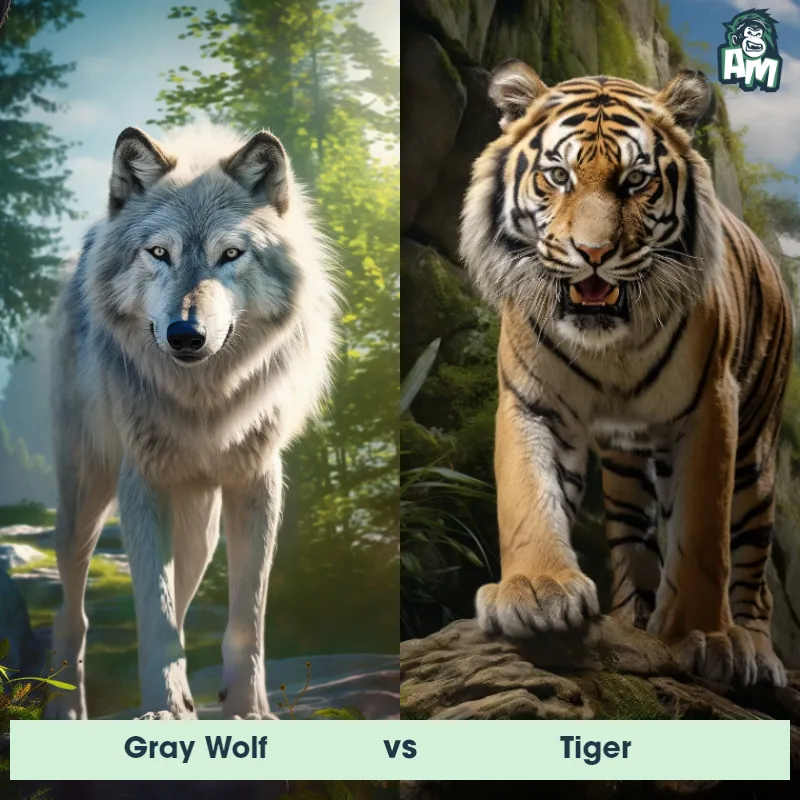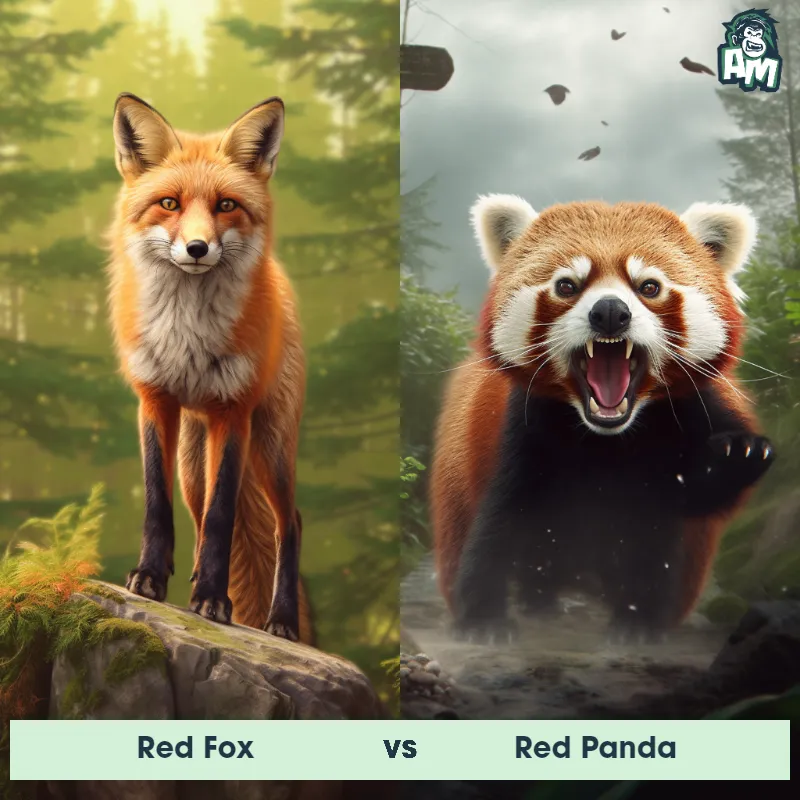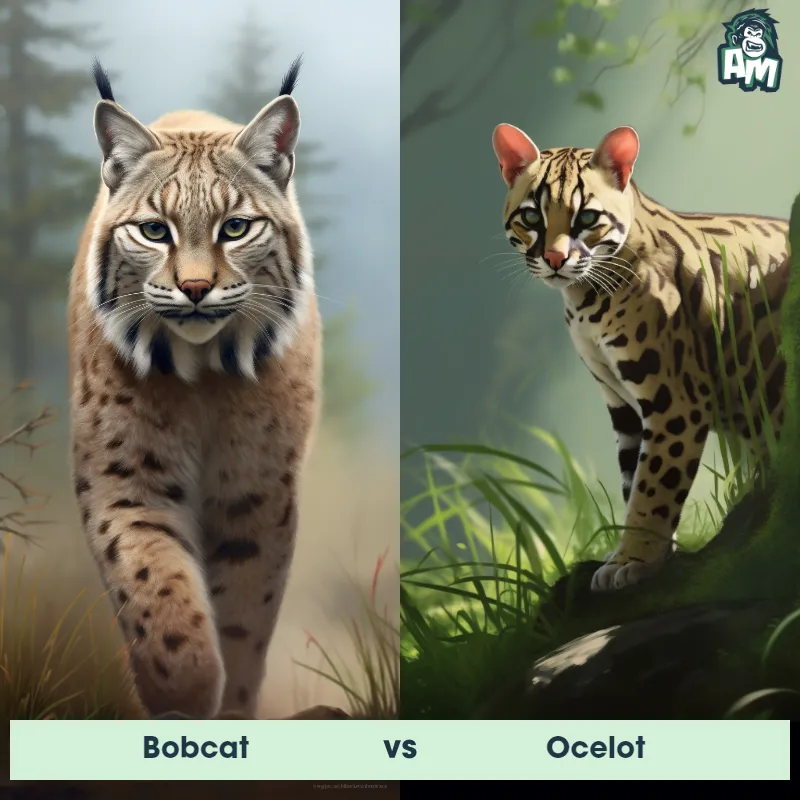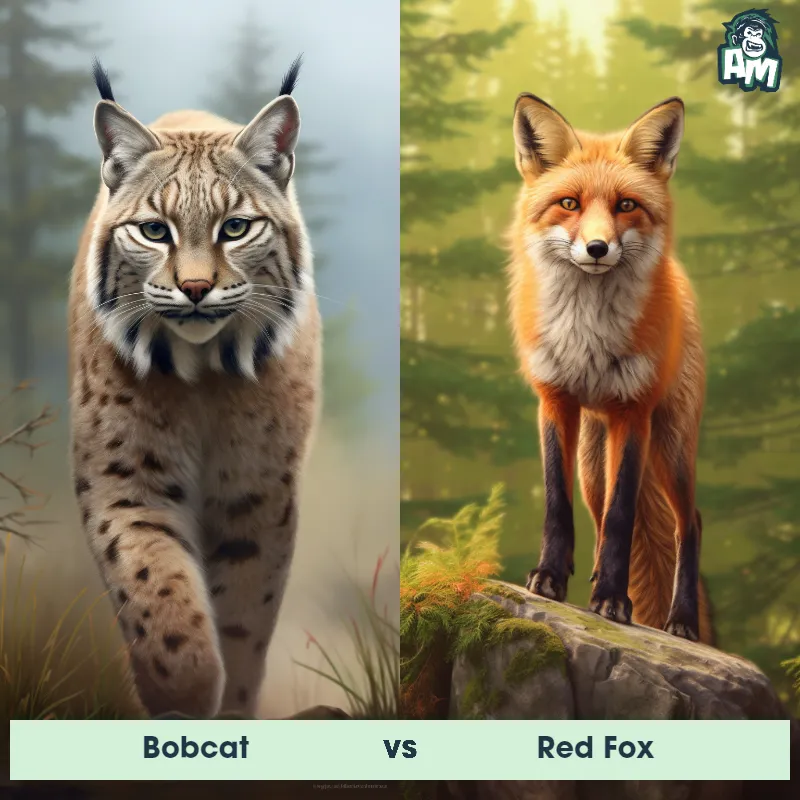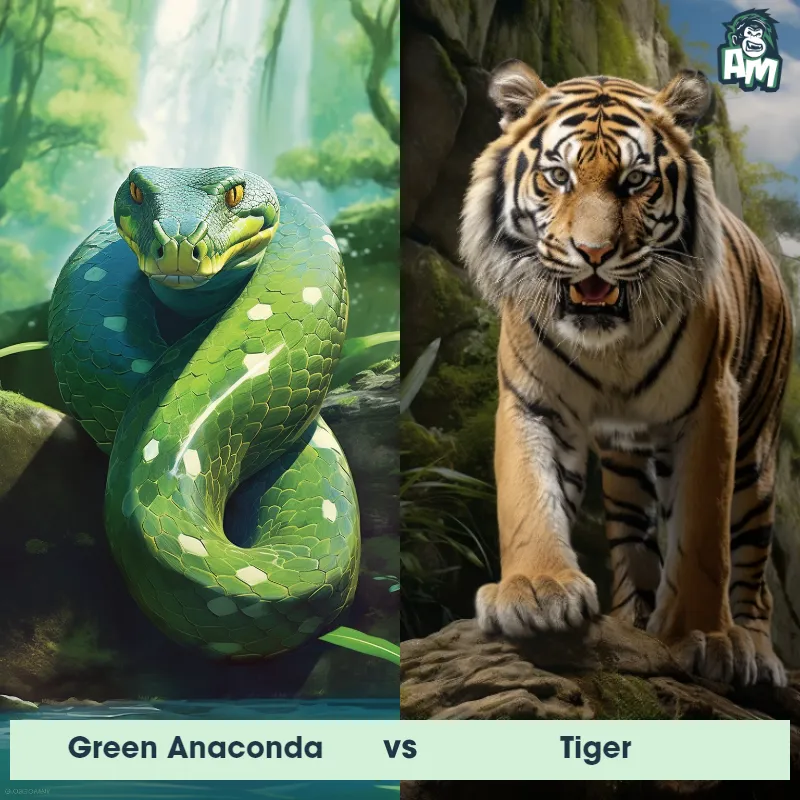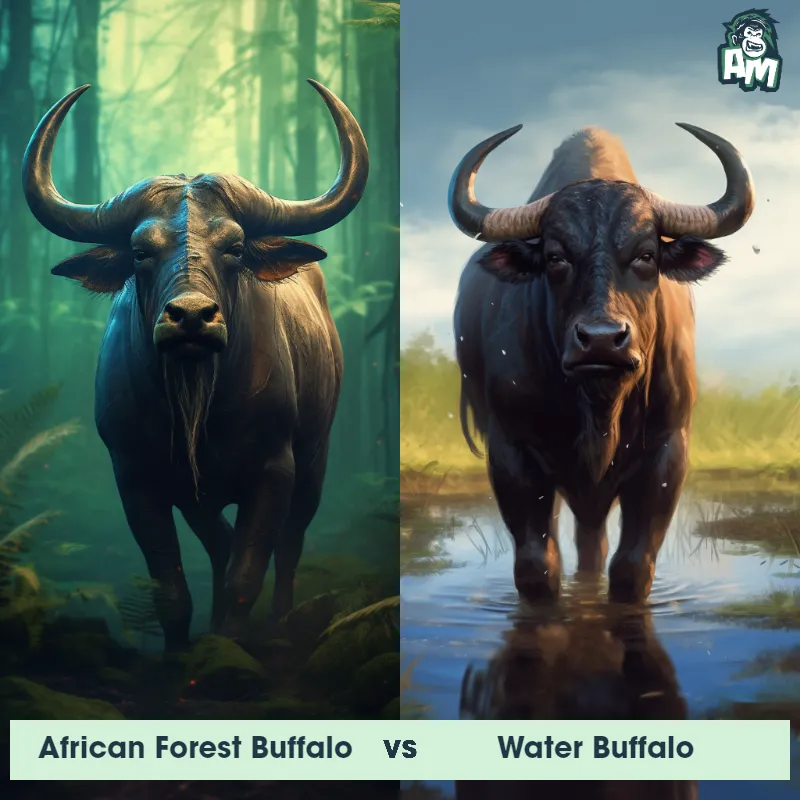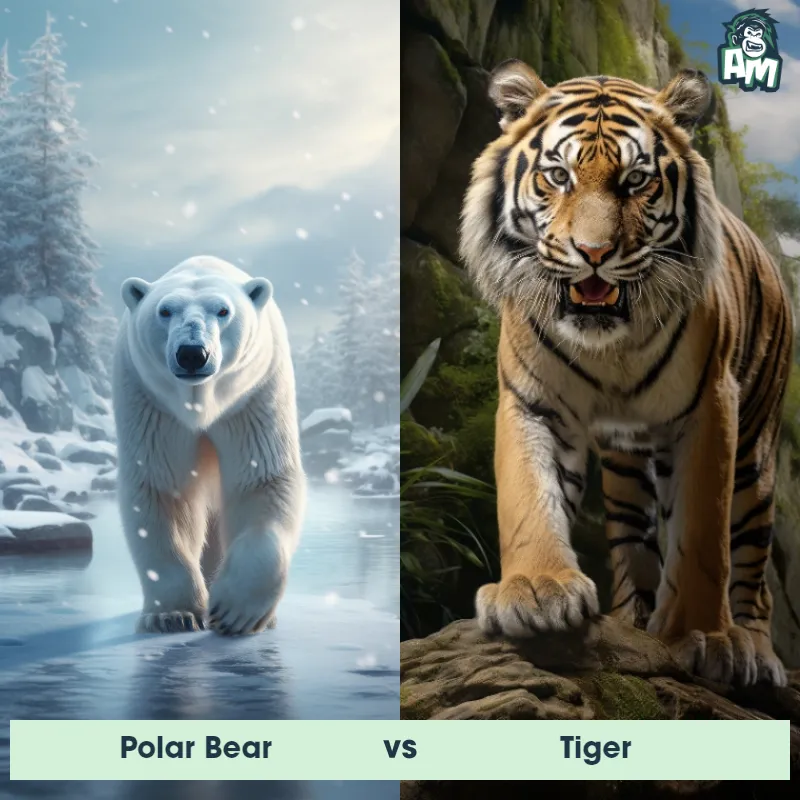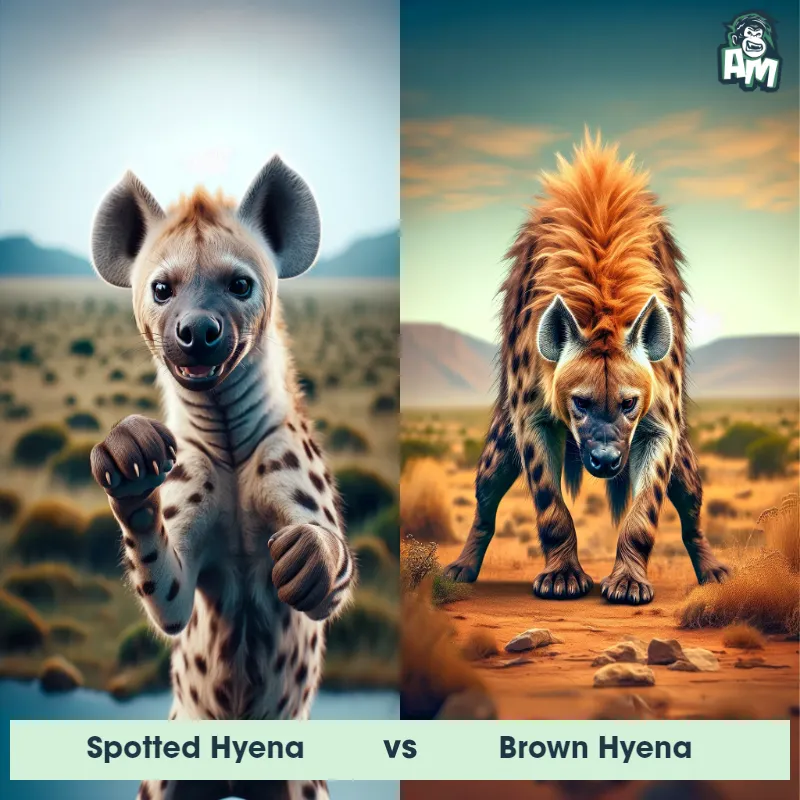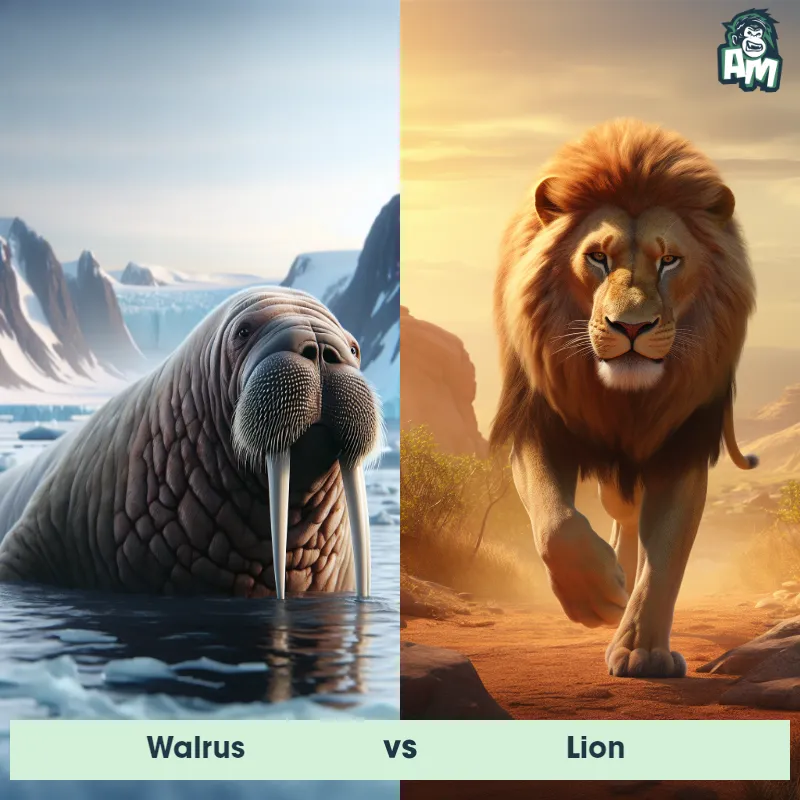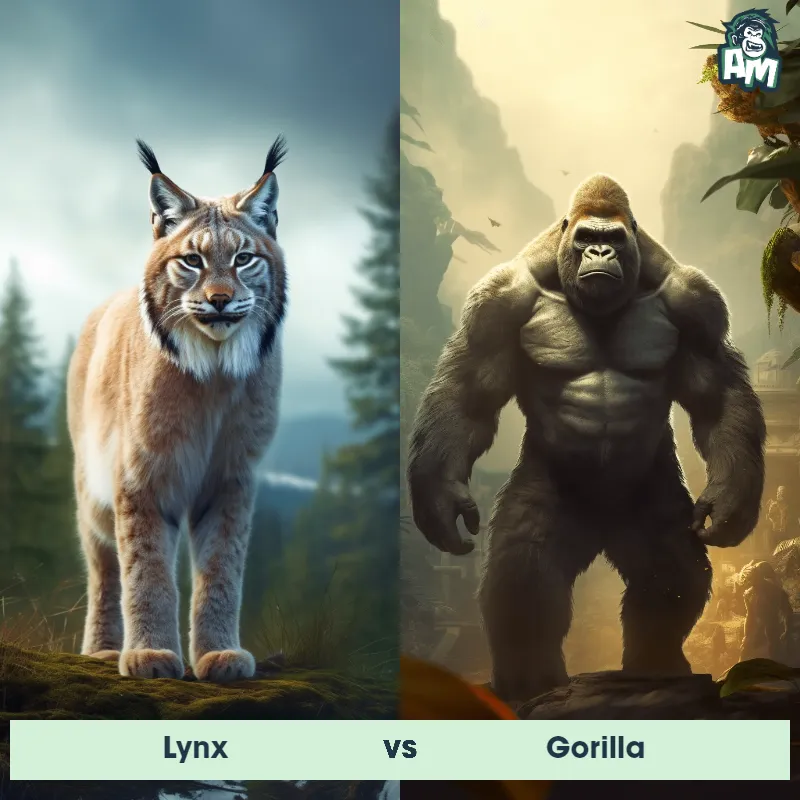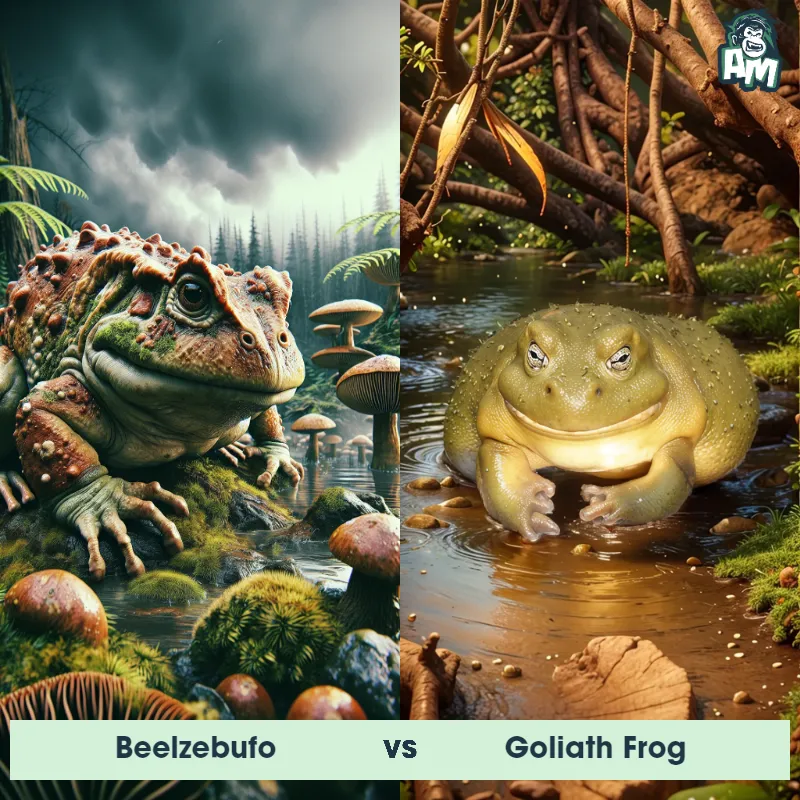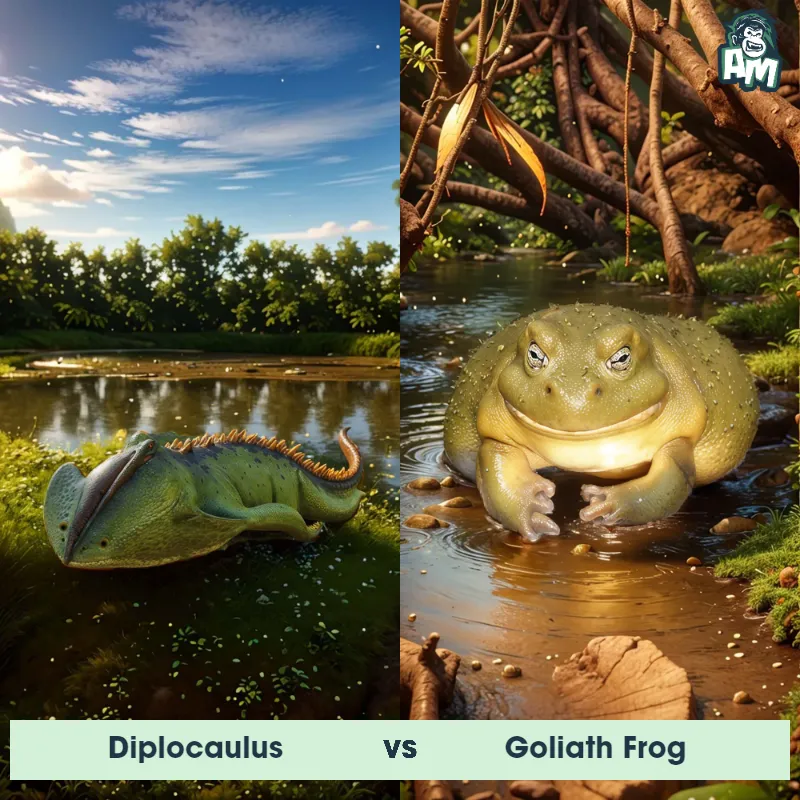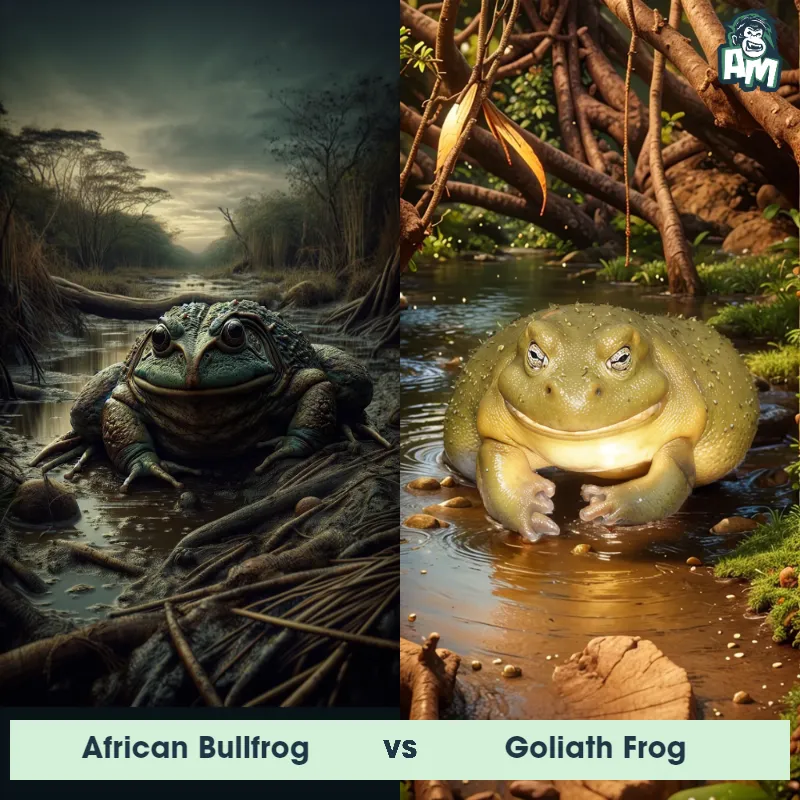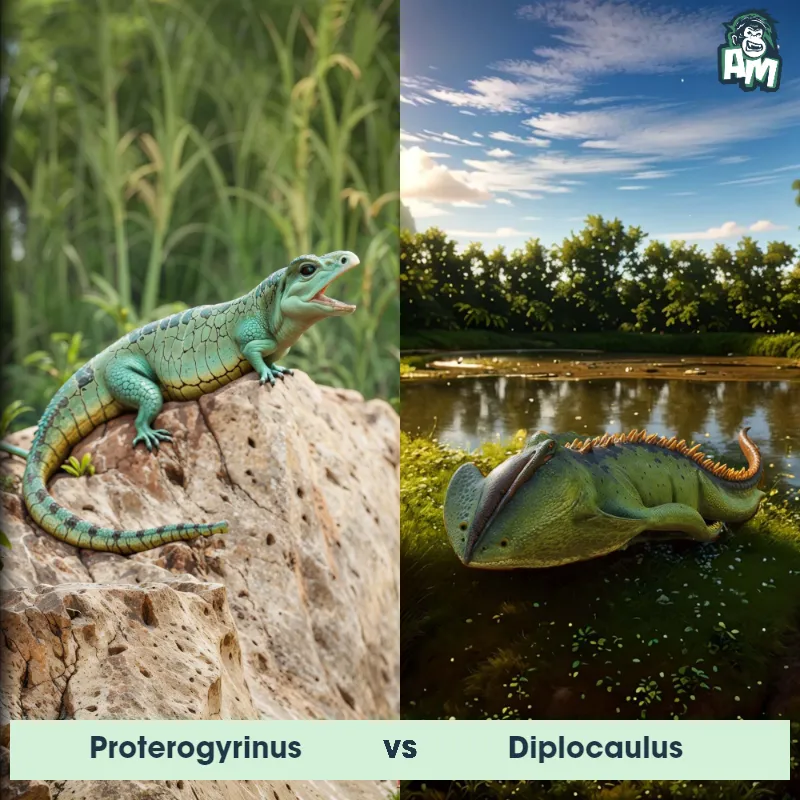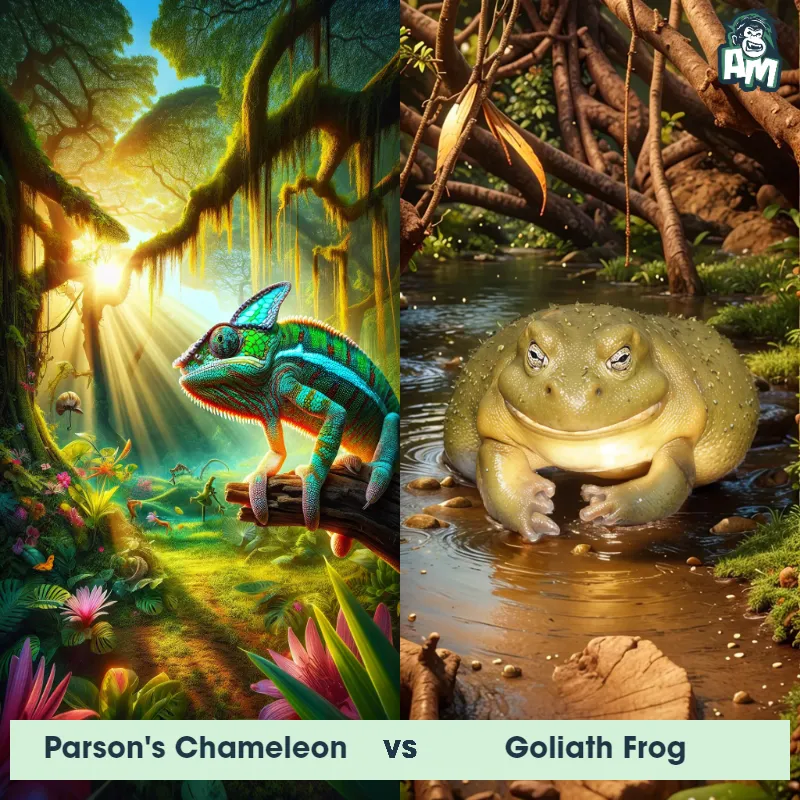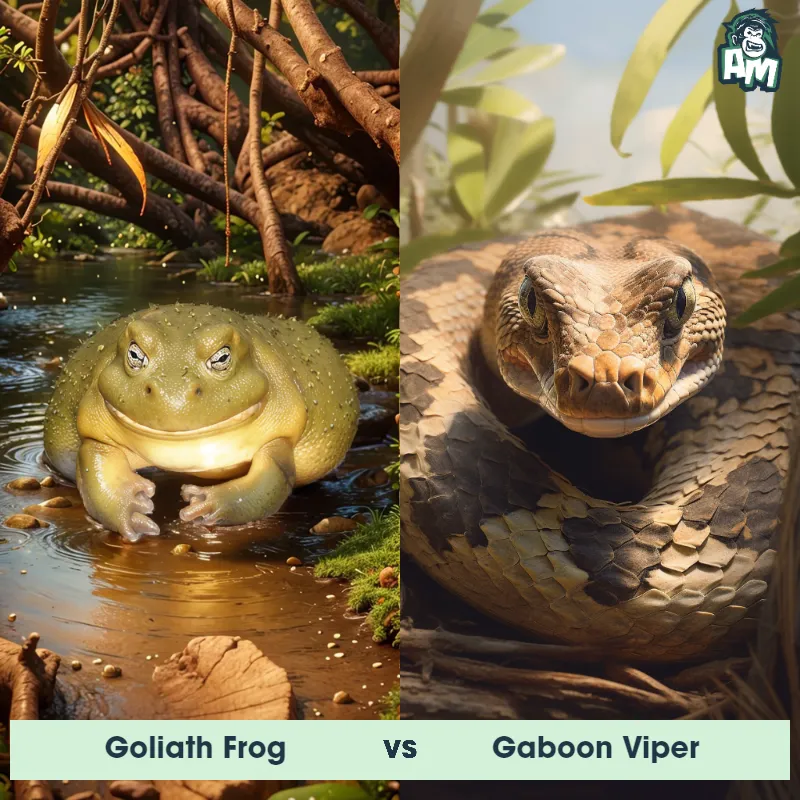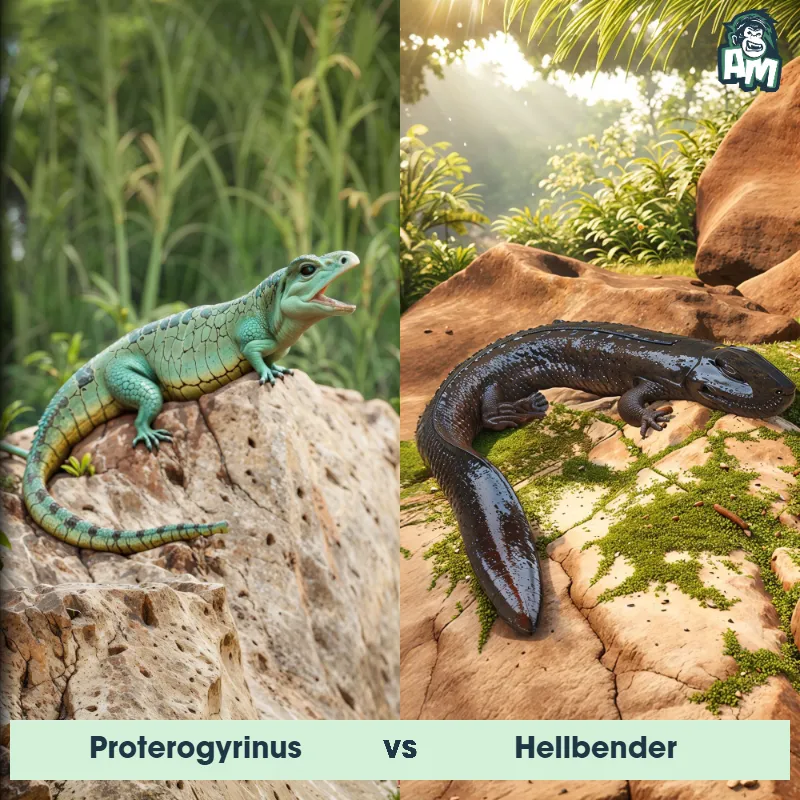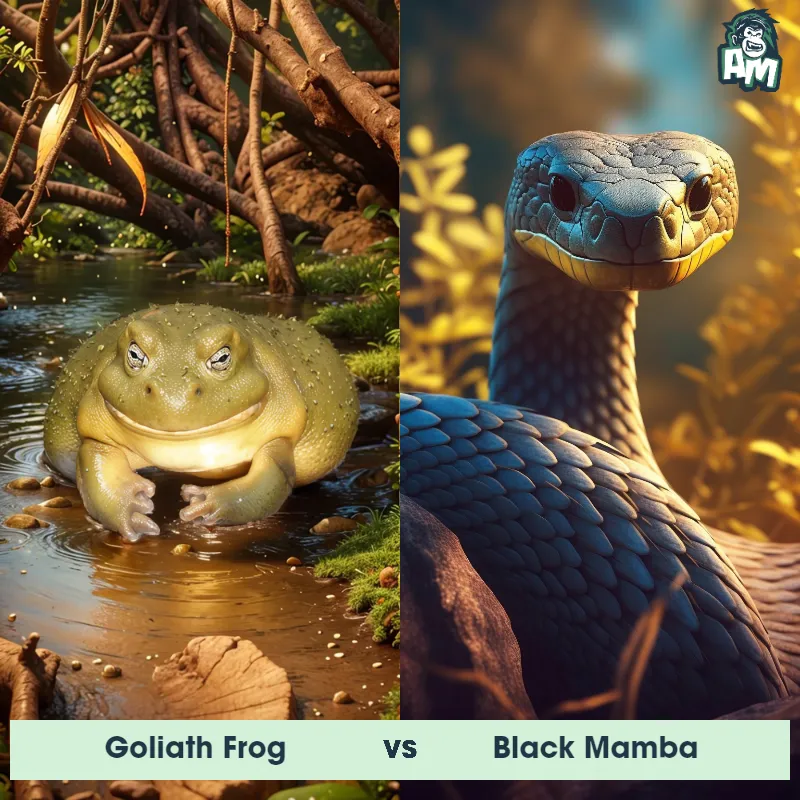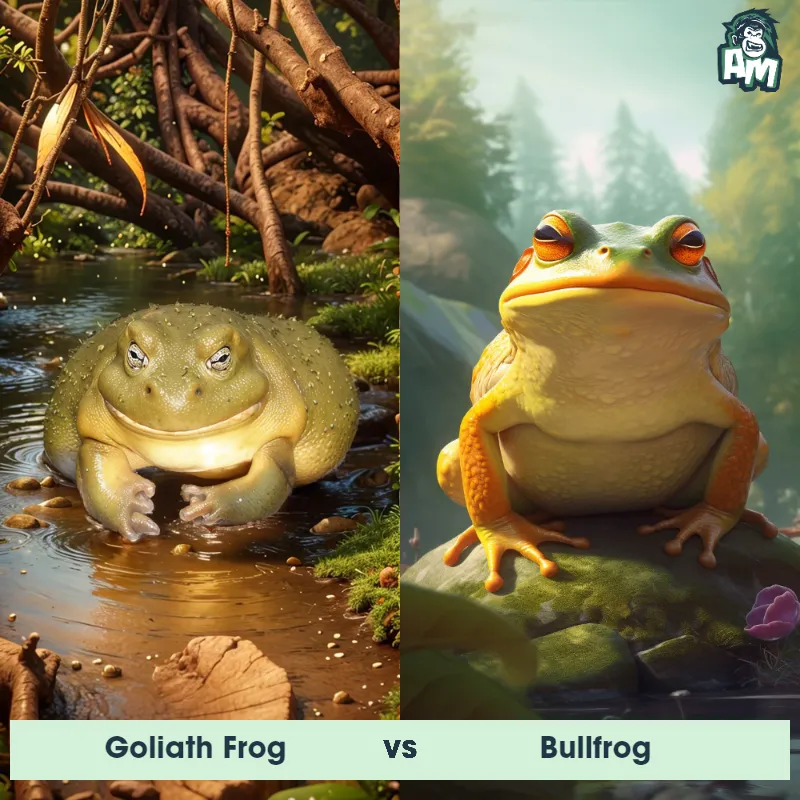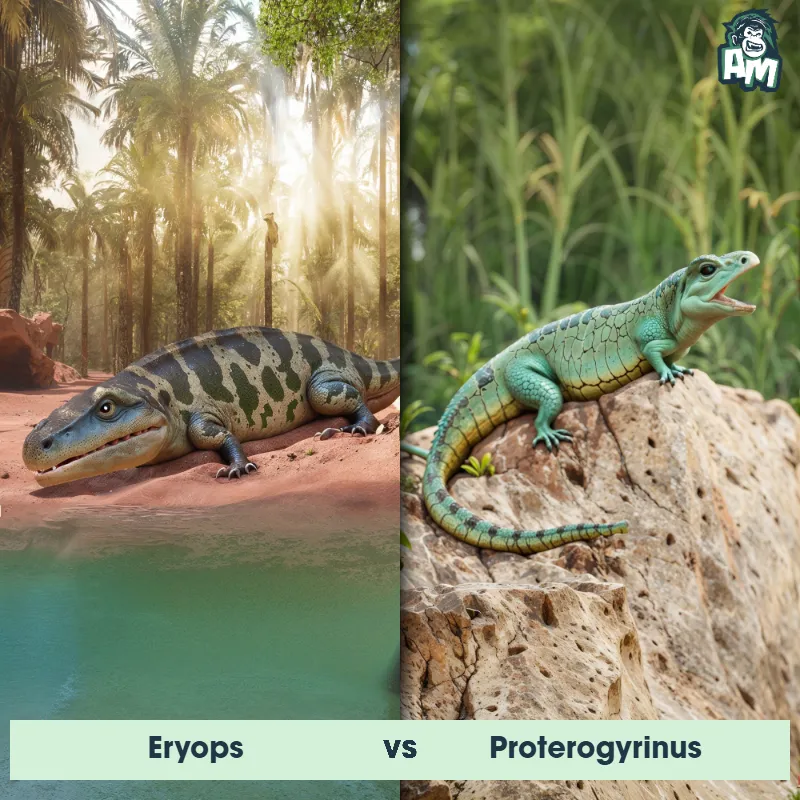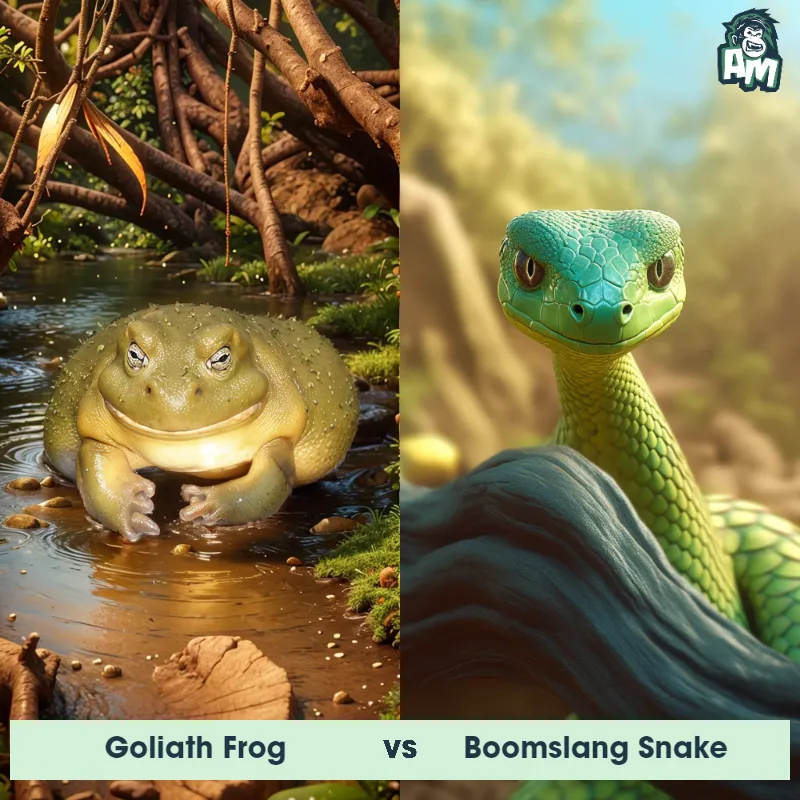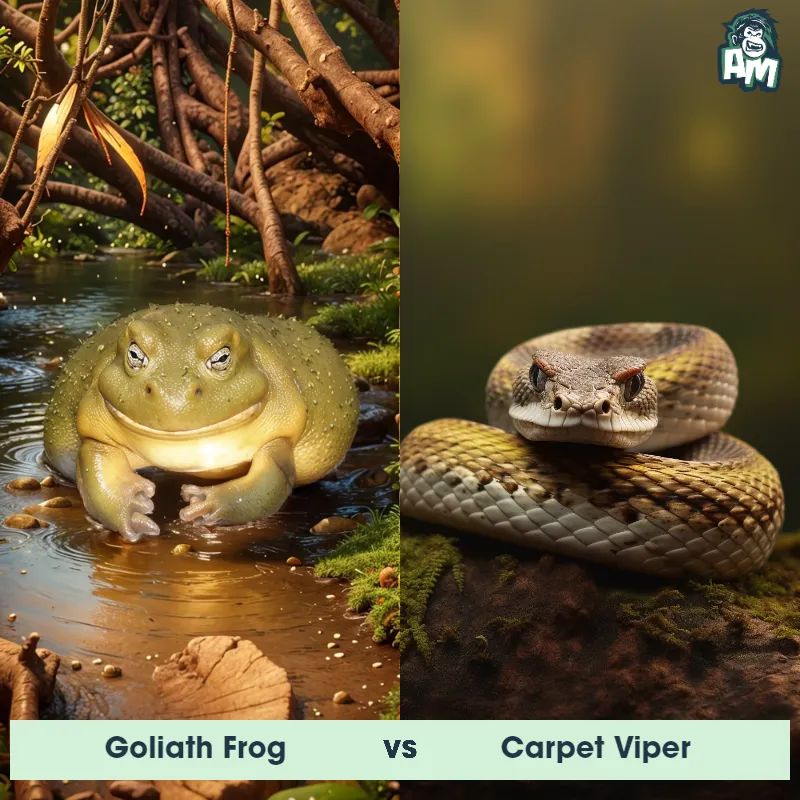Proterogyrinus vs Goliath FrogSee Who Wins

Welcome, ladies and gentlemen, to an epic matchup between two incredible creatures. In one corner, we have the Proterogyrinus, a prehistoric amphibian known for its sharp teeth and powerful jaws. And in the other corner, we have the Goliath Frog, the world's largest frog species. It's going to be a fierce battle between these two unique animals.
Contender 1: Proterogyrinus
Proterogyrinus, also known as "Early Grooved Newt," was a prehistoric amphibian that lived during the Carboniferous period. It had a long, slender body with four strong legs, indicating its ability to move on land. This animal had a combination of fish-like and amphibian characteristics, such as gills for breathing underwater and lungs for breathing air. It likely hunted small fish and invertebrates in swamps and shallow waters.
Fun Fact: Proterogyrinus had the unique ability to breathe using both gills and lungs, making it well-adapted for survival in both aquatic and terrestrial environments.
Contender 2: Goliath Frog
The Goliath Frog, known for its large size, can grow up to 30 centimeters in length and weigh over 3 kilograms, making it the world's largest frog species. These frogs have greenish-brown skin with darker markings, webbed feet, and powerful hind limbs for jumping. They inhabit the fast-flowing rivers and streams of West Africa, where they feed on insects and small vertebrates.
Fun Fact: Goliath Frogs have a unique way of communication, as they can produce loud calls that sound similar to a lion's roar when they are feeling threatened or during mating season.
Matchup Stats
| Proterogyrinus | Goliath Frog | |
|---|---|---|
| Size | 3 feet (0.9 meters) | Up to 30 centimeters (12 inches) |
| Weight | 20 pounds (9 kilograms) | Over 3 kilograms (6.6 pounds) |
| Speed | 15mph (24km/h) | 15-20mph (24-32km/h) |
| Key Strength | Powerful jaws | Powerful hind limbs for jumping |
| Biggest Weakness | Slowness on land | Limited defensive capabilities |
Current Votes
Proterogyrinus vs Goliath Frog
See Who Wins
View More Matches
Looking For More?
Similar Matches
Scientific Stats
| Proterogyrinus | Goliath Frog | |
|---|---|---|
| Scientific Name | Proterogyrinus | Conraua goliath |
| Family | Proterogyrinidae | Conrauidae |
| Habitat | Swamps, Shallow Waters | Fast-flowing rivers and streams |
| Geography | North America, Europe | West Africa |
| Diet | Small fish, Invertebrates | Insects and small vertebrates |
| Lifespan | 10 years - 15 years | 10 years - 15 years |
Key Differences between Proterogyrinus and Goliath Frog
- Habitat: Proterogyrinus lived in freshwater environments during the Carboniferous period, while the Goliath Frog is found in the rivers and ponds of the rainforests of West Africa.
- Diet: Proterogyrinus was a carnivorous predator that likely fed on other aquatic creatures, whereas the Goliath Frog is primarily herbivorous, feeding on fruits, plants, and insects.
- Size: Proterogyrinus is a prehistoric amphibian that reached lengths of up to 5 meters, while the Goliath Frog, the largest frog species in the world, grows up to 32 centimeters in length.
- Limbs: Proterogyrinus had fully developed limbs with five toes on each foot, resembling those of modern amphibians, while the Goliath Frog has hind limbs that are much larger and stronger than its forelimbs.
- Status: Proterogyrinus is an extinct species known only from fossil records, whereas the Goliath Frog is classified as vulnerable due to habitat loss and overhunting.
- Color: Proterogyrinus had a mottled pattern on its body that ranged from olive green to brown, whereas the Goliath Frog is typically bright green with black spots or patches.



